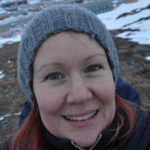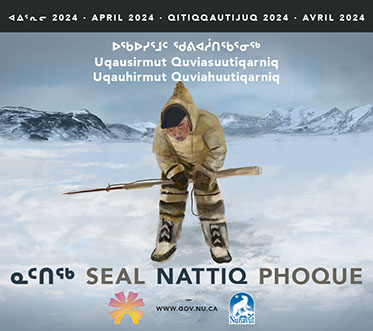Four of Nunavut’s five bowhead tags approved for 2019
Coral Harbour, Naujaat, Pond Inlet and Igloolik will hunt whales this summer
Hunters from Coral Harbour stand atop a bowhead whale caught in June 2018 just outside the Kivalliq community. (Photo by Greg Ningeocheak)
Wildlife boards in Nunavut have approved four of the five bowhead whale hunt tags to be distributed throughout the territory in 2019.
The Kivalliq Wildlife Board okayed a plan for a spring bowhead hunt in Coral Harbour this year, though hunters from the community have yet to harvest a whale. The second Kivalliq tag has been given to Naujaat, which is planning a hunt for late August or September.
Just this week, the Qikiqtaaluk Wildlife Board approved bowhead harvest plans from both Pond Inlet and Igloolik.
The Kitikmeot region has yet to chose which community will host its 2019 hunt.
Since 2015, the federal Department of Fisheries and Oceans’ annual bowhead quota for Nunavut has been set at five whales: two allotted to the Kivalliq region, two to the Qikiqtani and one for Kitikmeot.
The harvest quota of Eastern Canada-West Greenland whales is set to help conserve the animals, which are listed as a species of concern under Canada’s Species at Risk Act.
The Eastern Arctic bowhead whale population is considered endangered under the act.
Commercial whaling almost wiped out Canada’s bowhead population in the early 20th century. In the 1970s, the Canadian government outlawed commercial whaling, but re-opened the hunt—with strict quotas—for Inuit in the 1990s.
While Nunavummiut hunters still use harpoons to hunt the whale, they also have access to motor boats, rifles and an explosive grenade to help quickly kill the animal, if needed.
The butchering of the whales, which can measure up to 60 feet in length and over 100 tonnes in weight, is done by community members, who also share the muktuk.
“Keeping [this] tradition alive in this modern day is an honour and a privilege,” said a Coral Harbour hunter who helped harvest a whale in the Kivalliq last year.





It’s Maktak not muktuk. A lot of us read muktuk and pronounce it like mooktook. Use proper translation for Christ sake.
What ever you call it , for Christ’s sake don’t waste it like Iqaluit did last year.
Or like Rankin when they hunted for a bowhead, they left almost half the whale.
These smaller communities have better hunters and know how to catch and butcher the whales. Larger communities like Rankin and Iqaluit hunt less like Inuit, they lost the way, respect for animals and want to show off instead, once you catch the animal its not done, the real work starts.
These larger communities should bring some hunrers from the smaller communities to help them. Safe hunt.
The EC-WG bowhead population is “Special Concern” under COSEWIC but is not yet listed under SARA (search the registry and you’ll see it listed as “No Status”) (unlike the Bering-Chukchi-Beaufort population, which is listed on Schedule 1 of SARA). The “Eastern Arctic population” is an old designation that is no longer active – at one point it was, but it’s not on SARA Schedule 1 any more. It’s the same whales that are currently known as EC-WG. The old “Endangered” designation was from several decades ago, and the population has grown considerably since then, which is reflected by the current Special Concern designation. Just some points of clarification.
Congrats to the selected communities, and good luck to all the hunters and their community supporters. Stay safe out there!
Why are 5 big guys standing on the animal? Go behind or in front if you really need to have your picture taken.
Iqaluit should be excluded from Bowhead hunts for several years after last year.
Why even bother to hunt those big fishes.. don’t ppls even use food of those whales…